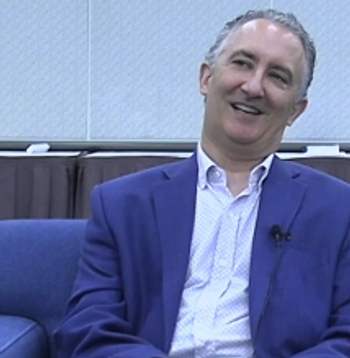
APA and DSM-V: Empty Promises
The debate over DSM-V has unfortunately taken an ugly turn with the APA leadership suggesting that Dr. Frances’s and my motivation for critiquing DSM-V is financial.
The debate over DSM-V has unfortunately taken an ugly turn with the APA leadership suggesting that Dr. Frances’s and my motivation for critiquing DSM-V is financial. People familiar with this controversy might recall that it all began when I asked Darrel Regier if I could look at the minutes of DSM-V Task Force meetings so that I could keep up with the ongoing process. He explained that he could not do this because of confidentiality agreements that all DSM-V participants have been required to sign. Because of my strong belief that DSM has been and should always be a completely open process, I started my effort to get APA to change its ways.
For brevity’s sake, I will limit my comments regarding APA’s response to Dr Frances’ commentary to the core issue of transparency. APA continues to maintain the empty rhetoric that the
DSM-V
process is the “most open and inclusive ever.” A concrete example indicates how opaque the process continues to be. At the APA Annual Meeting this past May, Drs. Regier and Kupfer announced that the
DSM-V
field trials would start on July 1, 2009 and be finished by June 30, 2010. which, given the fact that they need to submit the manuscript for publication by fall 2011 to meet the May 2012 deadline, is already cutting things pretty close. However, despite the fact that the field trials are about to start imminently, the following crucial details remain unknown, at least to those not in the inner circle of the
DSM-V
leadership: (1) What are the proposals that are being field tested? (2) What is the empirical basis for these proposed changes in terms of literature reviews and data re-analyses? (3) What is the planned methodology for the field trials such as the number of field trials to be conducted, the number and types of field trial sites; and the assessment procedures? (4) What are the research questions that the field trials are studying. Are they supposed to assess reliability? User acceptability? Risk of false positives? Validity? I have heard rumors that for the field trials, APA is planning to produce videotapes of patients (or actors role-playing patients) being interviewed and then ask clinicians to watch the tapes and make some sort of ratings. What kind of useful information do they hope to get from this methodology, which bears so little resemblance to the actual way clinicians make diagnoses, by interviewing their own patients?
I see two possible reasons for this information not being made public at this point in time, neither of which is encouraging. One possibility is that this information is already known to
DSM-V
leadership, but, for unclear reasons, it is not being made public, perhaps to shield themselves from criticism. A second possibility is that the
DSM-V
leadership does not yet know the answers to these questions. Given their plan to publish
DSM-V
in May 2012, if the second possibility is the case, it is inconceivable that this publication deadline could realistically be met. Whatever the case may be, serious consideration should be given to informing the public right now about the specifics of where
DSM-V
is going so that the process and eventual product can benefit from outside input from the field at large, as opposed to just the small groups of researchers that attend the sessions at which
DSM-V
presentations are being made. Furthermore, given the tight time constraints, APA should provide some rationale for trying to meet the May 2012 deadline.
Newsletter
Receive trusted psychiatric news, expert analysis, and clinical insights — subscribe today to support your practice and your patients.







